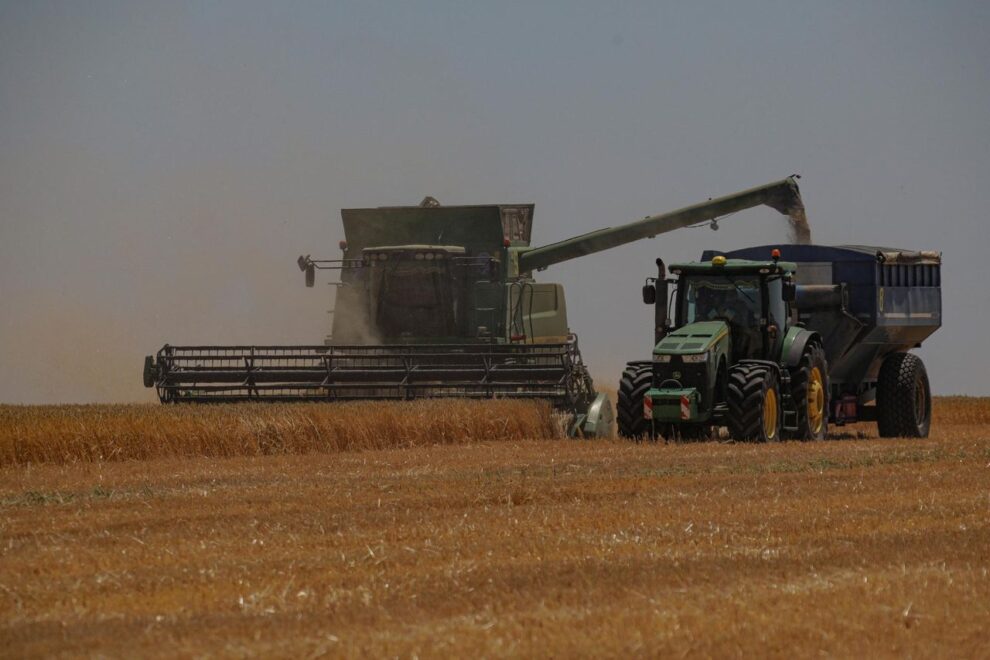The European Union is considering a proposal for the Russian Agricultural Bank to set up a subsidiary to reconnect to the global financial network as a sop to Moscow, the Financial Times said on Monday.
With the bank under sanctions, the move aims to safeguard the Black Sea grain deal that allows Ukraine to export food to global markets, the newspaper said.
The European Commission had no comment while the Kremlin on Monday, in response to a question about the report, said it had nothing to announce about the deal’s implementation.
The United Nations and Turkey brokered the Black Sea Grain Initiative for an initial 120 days last July to help tackle a global food crisis worsened by Moscow’s invasion of Ukraine, one of the world’s leading grain exporters. It has been extended three times since but is due to expire later this month.
More than 32 million tonnes of mostly corn and wheat have been exported by Ukraine under the deal.
Moscow reiterated on Monday it was pessimistic about the prospects for renewing the deal because no progress had been made in implementing accompanying agreements that pertain to Russian exports.
There was little immediate reaction in global grain markets on Monday with wheat prices Wv1 virtually unchanged.
“There is general belief in the market that the Ukrainian shipment deal will not be extended unless Russia gets substantive concessions,” one European grains trader said.
“Easing the banking sanctions would be a quick method of giving Russia something,” the trader said, adding there remained many doubts about whether the deal would be extended.
Russia last week said that it saw no reason to extend the grain deal because the West had acted in an “outrageous” way over the agreement, though it assured poor countries that Russian grain exports would continue.
Moscow’s plan, proposed through U.N.-brokered talks, would let the bank unit handle payments related to grain exports, the paper said, citing unnamed sources.
The new unit would be allowed to use the SWIFT global financial messaging system, which was closed to the largest Russian banks after Russia’s invasion of Ukraine, it added.
Responding to the Financial Times report, Ukraine’s foreign ministry ambassador at large, Olha Trofimtseva, said the EU wanted “to somehow facilitate the grain deal.”
“On the one hand, any opportunities for agricultural exports are good. On the other hand, making concessions to a blackmailer means encouraging him to continue blackmailing,” she wrote on the Telegram messaging app.
“It is a well-known axiom: a blackmailer does not stop if you fulfill his demands. He just comes up with new demands.”
As two of the world’s top agricultural producers, Russia and Ukraine are major players in grain and oilseed markets ranging from wheat and barley to rapeseed and sunflower oil. Russia is also dominant in the fertilizer market.
Apart from the restoration of SWIFT access, Russia is also seeking resumption of supplies of farm machinery and parts as well as the removal of curbs on insurance and reinsurance.





































